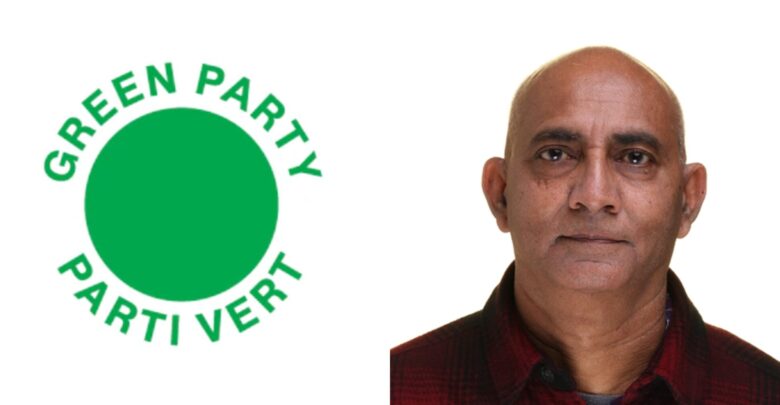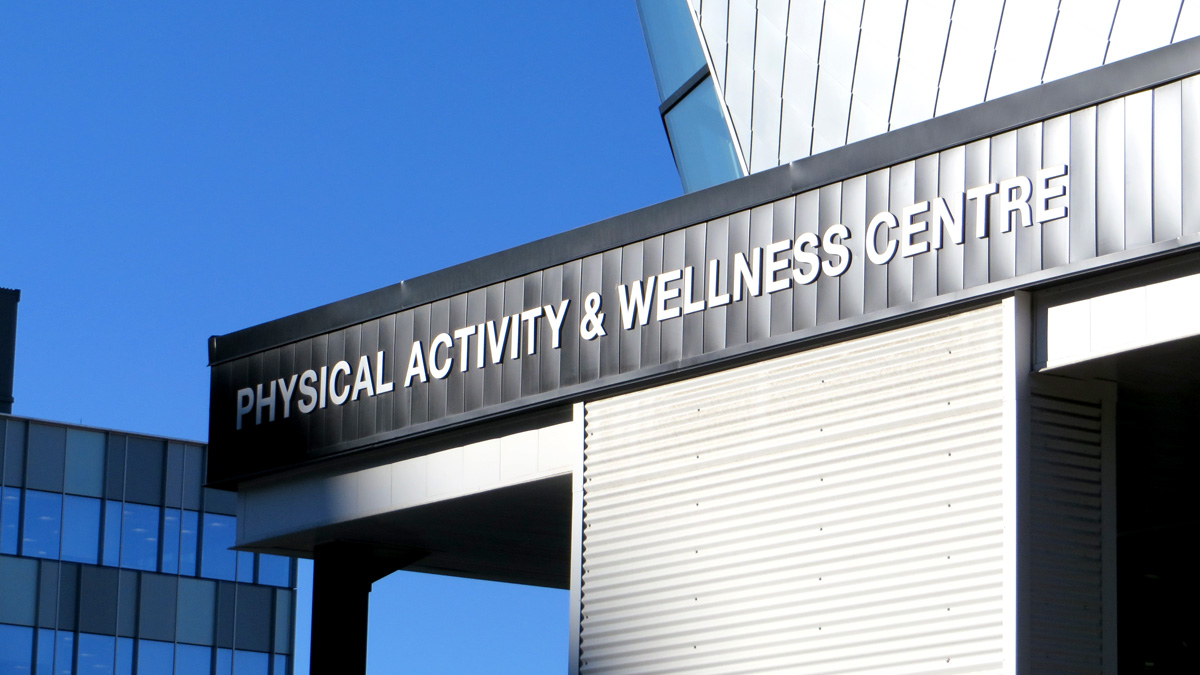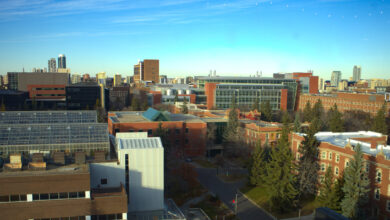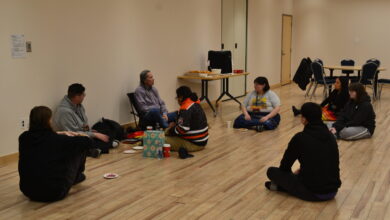Federal election 2025 candidate Q&As: Atul Deshmukh (Green Party)
"I want to make sure that education is a right, not just a privilege," Deshmukh says.
 Supplied
SuppliedThis article is part of The Gateway’s Q&A series with the 2025 federal election candidates for the Edmonton Strathcona riding.
Atul Deshmukh is running as the Green Party of Canada’s candidate for Edmonton Strathcona in the 2025 federal election. Deshmukh did an interview with The Gateway about student issues in this federal election.
Deshmukh is originally from India and got a Master’s in Engineering from the National University of Singapore. He has worked internationally and now does community consultation and works on community infrastructure in the high Arctic for Inuit communities.
Why are you running in this election and in Edmonton Strathcona specifically?
Atul Deshmukh: Edmonton Strathcona has a long incumbency from one political party, [the New Democratic Party (NDP)], so the riding is looking for a change. The same record player is running all the time, supporting one political party, because they can’t make government on their own, so they have to defend to keep the Conservative [Party] away. So I’m running to make sure that Edmonton Strathcona deserves bold, fresh leadership rooted in community values. I have been a compassionate leader and the election can change life, that’s what I think. I want to fight for a future that is green and affordable and just for students, families, and everything in this riding.
And also, I think there are few things, if I have time, I would like to address. The current NDP incumbent has not properly addressed electoral reforms, student debt, and affordable education. You can see inconsistency in [the] foreign relationship approach, particularly in India, the immigration system is totally mismanaged, and [there’s a] lack of action on visa delay that [is] causing unemployment and instability. I would like to propose substantial solutions for inflation and cost-of-living.
If elected, you would be responsible for representing many of the students who attend the U of A. What would be your priority in representing those students to your party and the government at large?
Deshmukh: The first thing is we need more inclusive education. We have lots of prestigious, highly reputed educational institutions. We are just catching many small colleges and bringing foreign students to run the education system, which is diluting the quality of education. So quality of education is one of the important things for me. I’m a lifelong student, and I want to make sure that education is a right, not just a privilege. So working on my party’s agenda to push for free education where it is needed, subsidize education depending on the economic criteria of a student and student debt. Also increasing the funding of research and innovation. I’m also advocating for student housing, which is drastically reduced and definitely needs to be addressed. You can see in off-campus or on-campus [housing], both affordability and energy efficiencies are required. We cannot treat students as a cash cow, that is very, very important. And also, I should say, we are losing the farmland recently. [The[ University of Alberta’s huge land and West [240] being given to make urban housing for the rich is not a good solution. We need more farmland and more green area in the university.
Affordability is a big issue for students, whether that’s the price of groceries or housing. How would you and your party work to address this issue?
Deshmukh: This should be done with valiant collaboration with the university administration, city administration. Housing is a big problem. So I hear students loud and clear. Housing is a real crisis, especially with students like [the] U of A farmland being sold for luxury homes, like I said earlier. We need to pause and rethink development. I will fight for affordable housing and livable income and having better public transit, which is very, very important. No student should choose between paying rent and buying groceries, so we should think about that.
How would you and your party approach financial support for students and post-secondary institutions through things like student loans, grants, or research funding?
Deshmukh: So student loans depend on merit and also grants, if the student is highly qualified and having merit, we should have more grants and scholarships for them. As well as student loans for domestic students, as well as some prime foreign students, because the government has to see the X checker. And now we are in the world of artificial intelligence [(AI)], so we have to see the employment part also. So the educational policy should be more and more collaborative with AI. We should not see it as a threat, but see it as an opportunity. So how students can use that, tap into that opportunity and make more and more employment for future generations
The U of A has a French speaking campus, which does receive federal funding. What would you and your party do for French speaking post-secondary students?
Deshmukh: I attended a conference in your French campus in Bonnie Doon, and I realized that French speaking students are slowly, slowly reducing in Canada and that is another issue. French is very popular and one of Canada’s [official] languages, so we can’t just ignore French. I love to talk in French, I’m not bilingual, but I work in a Francophone country, so I understand.
What we can say is that French is a part of Canada, so we need support for funding programming and protection of minority language rights as well as, like I said, [U of A’s] Campus Saint-Jean [(CSJ)]. Language is a culture. Basically, culture matters a lot.
How would you define academic freedom and how would you and your party protect it?
Deshmukh: Everyone has a right to learn whatever they can learn in academics. I’m an engineer, but I’m doing international relations courses and law courses. So everybody has a freedom to choose whichever academic background they want to go into. A doctor can turn into a politician, an engineer can turn into a politician by having political science courses. All the world’s leading CEOs, their background is in engineering, from India, but they did a master’s degree in business management. So the world is very small, and we need to be multi-skilled. You have to not think of it in a negative way. You have to think of it in a positive way, because the more you learn, the more you are multi-skilled. You can expand your horizons, so it’s always happy. So I am in favor of academic freedom for sure.
How would you and your party support Indigenous communities and students?
Deshmukh: [I’ve worked] in an Indigenous community for a long time so I understand truth and reconciliation, which starts with action, not just words and that’s what I think. I work with [the] Inuit, which are one of the Indigenous communities, so I myself, trained myself for Indigenous cultural competency. What I feel is that we should fully implement the Truth and Reconciliation Commission [(TRC)] calls to action, and follow the [United Nations Declaration on the Rights of Indigenous Peoples] (UNDRIP). I will also fight for clean drinking water, which in Indigenous reserves I find is lacking. They don’t have safe housing. Mental health is a big issue. So we need to take care of the mental health and drug addiction issue. Funding for Indigenous education is of utmost importance. So what I feel in Edmonton Strathcona, I would like to ensure Indigenous students feel welcome and supported, and their culture and language highly respected across the campus and surrounding communities within Edmonton and Canada.




